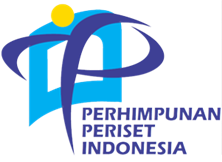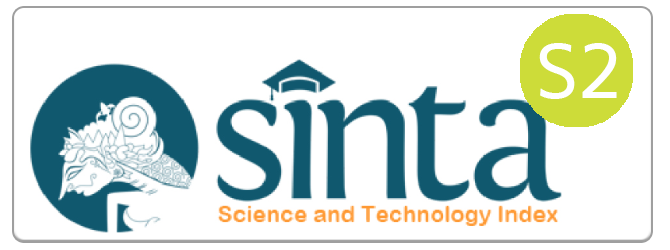Model Kolaborasi Kebijakan Deradikalisasi Agama Berbasis Pondok Pesantren
Abstract
Keywords
Full Text:
PDFReferences
Ansell, C., & Gash, A. (2008). Collaborative governance in theory and practice. Journal of Public Administration Research and Theory, 18(4), 543–571. https://doi.org/10.1093/jopart/mum032
Asrori, A. (2015). Radikalisme di Indonesia: Antara historisitas dan antropisitas. Kalam, 9(2), 253–268. https://doi.org/https://doi.org/10.24042/klm.v9i2.331
Bakti, S. (2014). Darurat Terorisme, Kebijakan Pencegahan, Perlindungan, dan Deradikalisasi. Jakarta: Daulat Press.
Creswell, J. W. (2015). Penelitian Kualitatif & Desain Research Memilih di Antara Lima Pendekatan. In S. Z. Qudsy (Ed.), alih bahasa, Ahmad Lintang Lazuardi. Yogyakarta: Pustaka Pelajar.
Culla, A. S. (2006). Rekonstruksi Civil Society : Wacana dan Aksi Ornop di Indonesia. Jakarta: LP3ES.
Emerson, K., Nabatchi, T., & Balogh, S. (2012). An integrative framework for collaborative governance. Journal of Public Administration Research and Theory, 22(1), 1–29. https://doi.org/10.1093/jopart/mur011
Hassan Shadily et. al. (1983). Ensiklopedi Indonesia. In Ensiklopedi Indonesia. Jakarta: Ichtiar Baru - Van Hoeve.
Hikam, M. A. (2016). Peran Masyarakat Sipil Indonesia Membendung Radikalisme Deradikalisasi. In Kompas (1st ed., p. 29). Jakarta: PT. Kompas Media Nusantara.
Innes, J. E., & Booher, D. E. (2000). Collaborative Dialogue as a Policy Making Strategy. Retrieved from https://escholarship.org/uc/item/8523r5zt
Keban, Y. T. (2008). Enam Dimensi Strategis Administrasi Publik (Konsep, Teori dan Isu) (Revisi). Yogyakarta: Gava Media.
Kouzes, J., & Posner, B. (2007). The leadership challenge. A Summary of the Original Text. Illinois: John Wiley & Sons, Inc.
Linden, R. M. (2002). Working Across Boundaries: Making Collaboration Work in Government and Nonprofit Organizations (1st ed.). San Fransisco: Jossey-Bass.
Ma’arif, S. (2014). Ideologi Pesantren Salaf: Deradikalisasi Agama dan Budaya Damai. IBDA: Jurnal Kajian Islam Dan Budaya, 12(2), 198–209.
Maknun, M. L. (2014). Implementasi Tradisi Ikhtilaf dan Budaya Damai pada Pesantren Nurul Ummah dan Pesantren Ar-Romli Yogyakarta. Analisa, 21(2), 239. https://doi.org/10.18784/analisa.v21i02.18
Markowitz, N. (n.d.). Radical and Radicalisme” dalam (Dictionary of American History, 2003). Retrieved from https://www.encyclopedia.com/history/dictionaries-thesauruses-pictures-and-press-releases/radicals-and-radicalism
Mukhibat. (2014). Deradikalisasi Dan Integrasi Nilai-Nilai Pluralitas Dalam Kurikulum Pesantren Salafi Haraki Di Indonesia. Al-Tahrir: Jurnal Pemikiran Islam, 14(1), 181. https://doi.org/10.21154/al-tahrir.v14i1.121
Mukhlis, M., Makhya, S., & Mustofa, I. (2019). The Urgency of Starting Condition in the Religious De-radicalization Policy Collaboration: The Pesantren Perspective in Lampung Province. Proceedings of the 1st Annual Internatioal Conference on Social Sciences and Humanities (AICOSH 2019), 121–127. https://doi.org/https://dx.doi.org/10.2991/aicosh-19.2019.26
Mustafa, M. K. (2011). Membincang Pesantren Sebagai Aktor Perdamaian Di Indonesia. Jurnal Masyarakat Dan Budaya, 13(2), 29–48. https://doi.org/10.14203/JMB.V13I2.128
Nahmias-Wolinsky, Y. (2004). Models, numbers, and cases: methods for studying international relations. Ann Harbor: University of Michigan Press.
Nasution, H. (1995). Islam rasional : gagasan dan pemikiran (Cetakan ke; S. Muzani, Ed.). Bandung: Mizan.
Natalia, A. (2016). Faktor-faktor Penyebab Radikalisme dalam Beragama (Kajian Sosiologi Terhadap Pluralisme Agama Di Indonesia). Al-Adyan; Jurnal Studi Lintas Agama, 11(1), 36–56. Retrieved from http://ejournal.radenintan.ac.id/index.php/alAdyan/article/view/1436/1152
O’Flynn, Janine and Wanna, J. (Ed.). (2008). Collaborative Governance A new era of public policy in Australia? https://doi.org/http://doi.org/10.22459/CG.12.2008
Plotnikof, M. (2015). Challenges of collaborative governance: an organizational discourse study of public managers’ struggles with collaboration across the daycare arena. Denmark: Copenhagen Business School.
Purwanti, N. D. (2016). Collaborative Governance. In A. Subarsono (Ed.), Kebijakan publik dan pemerintahan kolaboratif : isu-isu kontemporer (Cetakan I, p. 174). Yogyakarta: Gava Media.
Satriawan, Iwan, Syukur, Abdul, Tahmid, Khairuddin, Iwansyah, H. (2015). Identifikasi Potensi Radikal Terorisme Di Provinsi Lampung. Laporan Penelitian Forum Koordinasi Penanggulangan Terorisme (FKPT) Provinsi Lampung Tahun 2015. Bandar Lampung.
Solahudin. (2011). NII Sampai JI: Salafy Jihadisme di Indonesia. Depok: Komunitas Bambu.
Sugiyono, M. P. K. (2007). Kualitataif dan R&D, Bandung: Alfabeta, 2010. In Sugiyono, Metode Penelitian Kuantitatif kualitatif dan R&D Bandung: Alfabeta.
Susanti, E. (2016). Kolaborasi Dalam Penetapan Upah Minimum Di Kabupaten Bandung. Disertasi Doktor Ilmu Administrasi Universitas Padjadjaran. Bandung: Program Pascasarjana FISIP Universitas Padjadjaran.
Thohiri, M. K. (2017). Peran dan Strategi Pesantren dalam Konteks Deradikalisasi. Retrieved from https://www.halaqoh.net/2017/04/peran-dan-strategi-pesantren-dalam_13.html
Vangen, S., & Huxham, C. (2003). Nurturing Collaborative Relations: Building Trust in Interorganizational Collaboration. The Journal of Applied Behavioral Science, 39(1), 5–31. https://doi.org/10.1177/0021886303039001001
Yunus, A. F. (2017). Radikalisme, Liberalisme dan Terorisme: Pengaruhnya Terhadap Agama Islam. Jurnal Studi Alquran, (Vol 13 No 1 (2017)), 76–94. https://doi.org/https://doi.org/10.21009/JSQ.013.1.06
Zadek, S. (2006). The Logic of Collaborative Governance and the Social Contract. In Public Policy. Retrieved from https://www.hks.harvard.edu/sites/default/files/centers/mrcbg/programs/cri/files/workingpaper_17_zadek.pdf
DOI: https://doi.org/10.18784/smart.v6i1.905
Refbacks
- There are currently no refbacks.
Copyright (c) 2020 Maulana Mukhlis

This work is licensed under a Creative Commons Attribution 4.0 International License.







